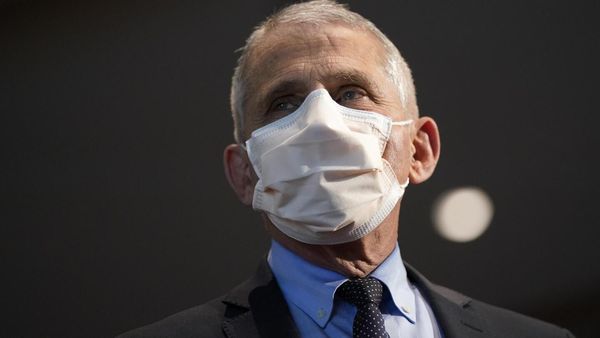
Dr. Anthony Fauci, the renowned director of the National Institute of Allergy and Infectious Diseases, has been the subject of a recent controversy on social media. Misleading posts are circulating, claiming that Fauci admitted face masks were a “failure” in a recent interview. But let’s set the record straight: these claims are false, and people are misrepresenting Fauci’s words.
In an interview published by The New York Times Magazine, Fauci shared his reflections on the United States’ response to the COVID-19 pandemic. However, some social media posts cherry-picked one sentence from his response to falsely suggest that Fauci believes masks don’t work.
So what did Fauci really say? The truth is that he acknowledged that mask initiatives may have a small impact at the community level. But, importantly, he also emphasized that a properly worn, high-quality mask can be effective protection for an individual.
Fauci clarified his stance, stating that his comments were taken out of context and distorted. He explained that masks work at the margins—meaning they can have a small impact on reducing the spread of the virus at the population level. However, for individuals who consistently wear well-fitted KN95 or N95 masks, the protection is not marginal—it really does work.
One example that is often cited is a randomized trial conducted in Bangladesh, which showed that increased mask use reduced COVID-19 cases by approximately 10 percent. But Fauci emphasized that it’s crucial to distinguish between mask-wearing initiatives aimed at reducing COVID-19 in communities and the effectiveness of properly worn, high-quality masks for individual protection.
Fauci highlighted that the success of mask-wearing initiatives depends on ensuring people actually wear masks consistently and correctly. He pointed out that when looking at studies from a population standpoint, it’s important to consider that not everyone wears masks all the time or wears them properly.
The confusion surrounding the effectiveness of masks was further fueled by a recent analysis by Cochrane, a British organization that evaluates research. Some commentators concluded that the review proves masks don’t work, but that interpretation is inaccurate and misleading. The review actually found that the effects of interventions such as mask-wearing were inconclusive in terms of slowing the spread of respiratory viruses, but it did not prove that masks are ineffective.
In conclusion, it’s important to remember that when masks are used consistently and properly at the individual level, they are highly effective at providing protection. Misrepresentations of Fauci’s words and the misinterpretation of scientific studies have led to confusion and misinformation. Let’s rely on accurate information to make informed decisions about mask-wearing and public health measures.
This article is part of AP’s ongoing effort to debunk and correct misinformation. We are committed to providing factual context and addressing misleading content that circulates online.



